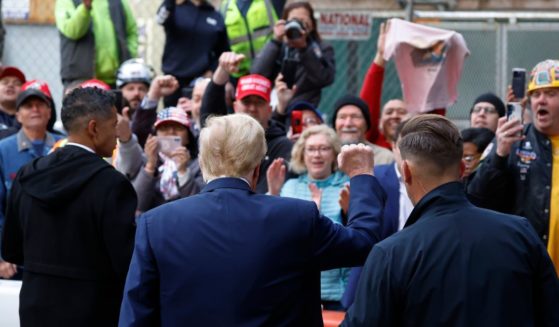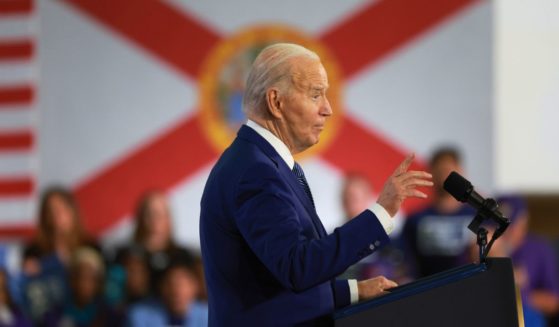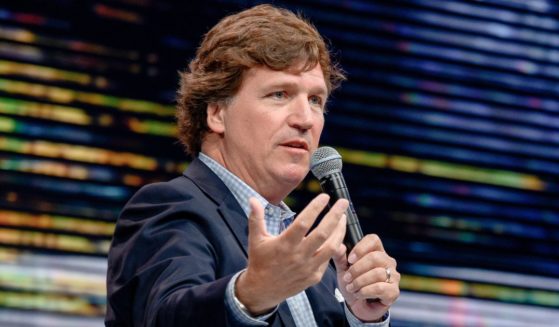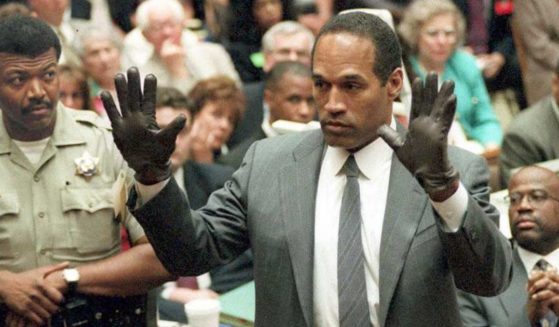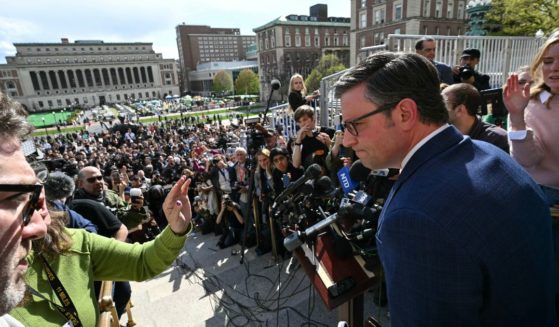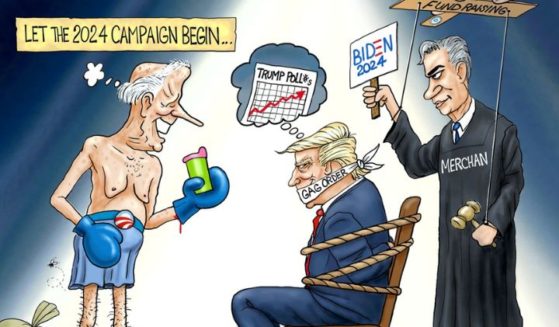Economist/YouGov Polls Savage Biden, Show 2016 Happening All Over Again - and a Trump Win
One of the trendy theories in pop political science right now is that there’s no such thing as a “swing voter.” There are no “undecideds.” Voters in that slice of the pie chart you see that says “not sure” are perfectly sure of whom they would vote for. It’s just whether or not they’re interested in voting.
The most prominent exponent of this theory is Rachel Bitecofer, a political science professor at Christopher Newport University in Virginia. While something resembling the theory had been floating around in more amorphous forms, Bitecofer became a wonk-universe star in the aftermath of the 2018 midterms, in which she predicted the Democrats’ retaking of the House of Representatives with uncanny accuracy and specificity.
The elevator pitch for her theory is this: Elections are won or lost not by persuading an illusory middle in American politics that’s almost entirely disappeared, but by turning out more of your voters than the other side does.
Now, according to Politico, Bitecofer thinks the data show the Democrats are almost certain to regain the White House in 2020. And, to be fair, one set of polls isn’t everything. That said, proponents of this new theory might want to take a close look at what respondents in recent Economist/YouGov surveys have been saying. It could mean 2016 — when Donald Trump defied the polls to defeat Hillary Clinton — is about to happen all over again.
In an article at YouGov on Saturday, Mark Blumenthal noted the raw results were unsurprising: Former Vice President Biden was in the lead, and by a fairly substantial margin that was consistent throughout surveys conducted in recent weeks.
However, also consistent was the fact that Biden supporters were thoroughly unexcited about their candidate.
“The gap in enthusiasm for the two candidates has remained constant in recent weeks along with Joe Biden’s lead. When we combine data from the Economist/YouGov trial heats in July, Biden leads Trump by the same nine percentage point margin (49% to 40%) as on the most recent survey,” Blumenthal wrote.
“During July, better than two-thirds of Trump supporters (68%) felt ‘enthusiastic’ about him compared to 40 percent of Biden supporters who felt the same about him. Enthusiasm for Biden has grown over the last month (from 31% in mid-June), but the large gap between the candidates on this measure remains.”
According to YouGov, the polls consisted of weekly online interviews over the course of July with 1,500 U.S. adults selected from an opt-in panel to be representative of the country as a whole, with samples weighted according to gender, age, race and education. Margins of error over the weeks ranged from 3.2 percent to 3.5 percent.
The surveys also considered enthusiasm for voting, and Trump came out ahead, too — albeit by smaller margins.
When asked whether or not they were enthusiastic about “voting for President in the upcoming presidential election in November,” 76 percent of Trump supporters said yes, compared with 69 percent of Biden supporters.
Fifty-six percent of Trump voters, meanwhile, said they were “extremely enthusiastic” about voting for their candidate, compared with 50 percent of Biden voters.
Economist/YouGov were finally able to dig deep enough to find numbers that didn’t show some kind of substantial gap between Trump and Biden in the enthusiasm department.
When asked whether they were “more enthusiastic” about this election than previous elections, 55 percent of Trump supporters said yes, against 53 percent of Biden supporters. However, 18 percent of Biden voters were “less enthusiastic” this year, as opposed to 11 percent of Trump voters.
But, according to Blumenthal, they finally found a question that “erases the gap completely.” That being: “how important is voting for President this November?” That produced a result where 91 percent of Trump voters thought it was important against 92 percent of Biden supporters.
However, I’d argue that question is as good as useless. We’re all told, from the moment civics is introduced to us by our parents and our teachers, how important it is for us to vote — not just in presidential elections but in all elections, up to and including school board elections.
This may be true, but we’re also told by our doctors how important it is for us to get exercise every day, and while there are plenty of people in gyms after work, there are more people in line at Chipotle on their lunch break.
Now, there’s also the possibility that voting against President Trump might be as important as whether or not voters feel enthusiastic about Joe Biden or for voting. In June, 62 percent of voters said their vote was “mostly against Donald Trump,” with that number falling slightly to 57 percent in the July surveys, Blumenthal wrote.
The question is whether or not enthusiasm or dissatisfaction was a key motivator in driving people to the polls. To settle this question, Blumenthal decided to consult a totally unbiased source, a Democrat-aligned polling concern.
“Analysts at the Democratic polling firm Global Strategy Group found that questions on ‘motivation’ to vote were better predictors of actual turnout (as validated by voting records) than questions on ‘excitement’ about voting in elections in both 2018 and 2019,” Blumental noted. “Their theory is that ‘motivation’ captures a broader range of feeling than ‘excitement,’ particularly when voters ‘are showing up to express dissatisfaction’ with another candidate rather than just ‘showing up to vote for someone or to affirm something.’ That distinction may be analogous to the expressions of ‘enthusiasm’ and ‘importance’ in regard to voting in the Economist/YouGov surveys.”
Blumenthal also noted that 2018 polling from CBS/YouGov showed similar enthusiasm between Republicans and Democrats for the midterms but “found that their pre-election enthusiasm did little to predict whether they actually voted, at least after controlling for their self-reported likelihood of turning out.” He also noted that Mitt Romney had a higher enthusiasm level than Barack Obama and still lost.
In the first case, however, I’d argue that enthusiasm polls for 2018 midterms were complex — particularly since Republican enthusiasm didn’t spike until the Kavanaugh hearings, which had mostly disappeared from the headlines by the time the midterms rolled around. Before then, polls had showed the GOP running a significant enthusiasm deficit.
As for Romney, if you believe that voters “are showing up to express dissatisfaction” with the other side as opposed to voting out of enthusiasm, 2012 should have been a Romney year, too. Obamacare was still unpopular, the economy wasn’t recovering that quickly from the 2008 financial crisis and Republicans had bowled over the Democrats in the 2010 midterms. Romney’s loss, therefore, could be seen as invalidating either theory.
To that extent, the 2016 election was also one where voters “showing up to express dissatisfaction” with a candidate should have buried Trump. Democrat voters hated him just as much then as they do now. One of the reasons why he’s now president, among many others, was that they were also profoundly unenthusiastic about Hillary Clinton.
Four years later, Mark Blumenthal is reading the Economist/YouGov tea leaves and coming to the conclusion that fear and loathing of Donald Trump is going to drive voter turnout more than enthusiasm. Just like in 2016.
In short: If Rachel Bitecofer is right and all there is to elections is driving turnout, Democrats shouldn’t look at that 9-point lead with ease. They’re selling a product no one’s particularly excited about and their message seems to be that the other product is worse. To that extent, they’ve been successful, with the assistance of a mainstream media monolith that has been on the attack against the Trump White House for going on four years.
The complications arise when you consider that no one has to buy either product.
Truth and Accuracy
We are committed to truth and accuracy in all of our journalism. Read our editorial standards.

